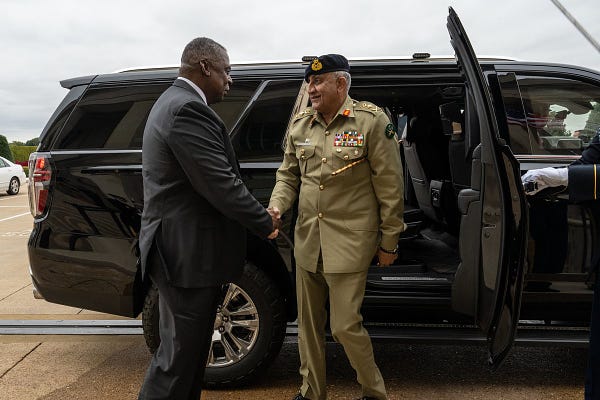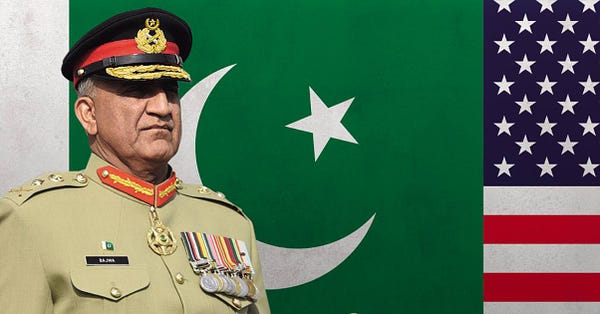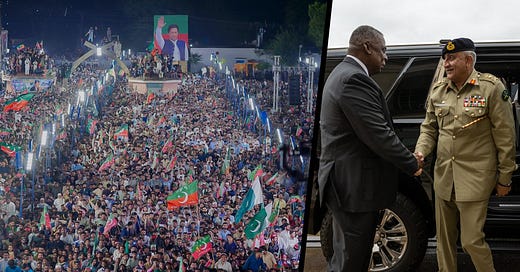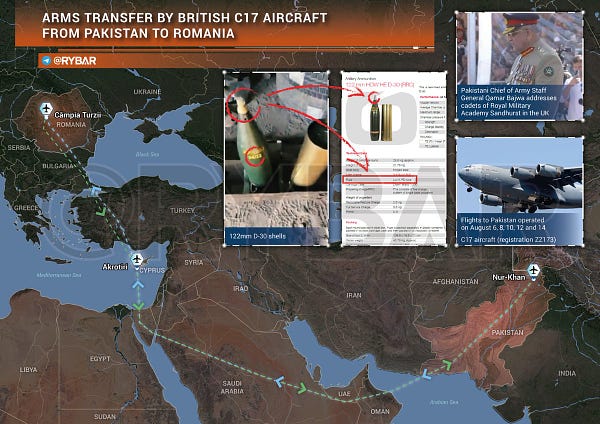Pakistan coup regime bans Imran Khan, dissidents killed, as US eyes China ties, Israel normalization
Following a US-backed coup, Pakistan's military-dominated regime banned former PM Imran Khan from office. Army chief Bajwa visited Washington to discuss China ties, arming Ukraine, recognizing Israel
After Prime Minister Imran Khan was overthrown in a US-backed soft coup, Pakistan's unelected "imported government" has banned the country's most popular politician from office, sparking huge protests.
Pakistani scholar Junaid S. Ahmad spoke with Multipolarista editor Ben Norton about the army chief's friendly trip to Washington and US efforts to pressure Pakistan to weaken ties with China, arm Ukraine in its war with Russia, and recognize apartheid Israel.
Ahmad also addressed the growing political violence and assassination of dissident journalist Arshad Sharif, a prominent critic of the coup regime who had been reporting on its corruption. Fearing for his life, Sharif fled to Kenya, where he was shot in the head on October 23.
Ahmad said Pakistan is "caught" in the middle of Washington's new cold war on China.
"But Pakistan is in a very weak position," Ahmad cautioned. "The United States is now going after Pakistan because it sees Pakistan as the weakest link in all of this Eurasian integration project, and to try to get Pakistan to either remove itself or distance itself from that Eurasian project."
The leader of Pakistan's powerful military visited the United States and Britain in the first week of October. Chief of Army Staff General Qamar Javed Bajwa held a series of meetings with Defense Secretary Lloyd Austin and other top US officials.
US government propaganda organ Voice of America (VOA) acknowledged that the Pakistani army chief's trip was a "bid to redefine ties."
VOA reported that, "since the conclusion of the Afghan war, relations between Washington and Islamabad will largely be determined by 'the geopolitical competition, global competition, between U.S. and China.'"


Japan's news publication Nikkei Asia cited anonymous "sources with firsthand knowledge of the general's recent meetings" who said that it shows Pakistan's unelected coup regime is "seeking nothing less than a new arrangement with the U.S."
Nikkei reported:
According to one official familiar with the proceedings, Bajwa presented a vision for a bilateral relationship "much like the Americans' understanding with South Korea."
"He told them that we'd like to be a strategic partner of the U.S. not in name, but in action," said the official, speaking on condition of anonymity.
The report likewise made it clear that the United States wants Pakistan to soften its relations with China and recognize apartheid Israel - something that Imran Khan had adamantly refused to do. Nikkei wrote:
In Washington, sources said that Bajwa, in addition to laying out a new vision for the relationship, explained Pakistan's positions on a wide range of regional issues, even the prospect of opening up relations with Israel.
Regarding China, sources said U.S. officials cautioned Bajwa about Islamabad's proximity to Beijing.


As prime minister, Khan had maintained neutrality over the NATO-Russia proxy war in Ukraine. The Pakistani leader had in fact visited Moscow and signed economic agreements with Russian President Vladimir Putin.
Since the judicial coup, however, Islamabad has done a 180. Independent researchers have shown that Pakistan is providing Ukraine with ammunition and military equipment, allegedly sending artillery shells with the help of the British air force.
At the same time, the Joe Biden administration has pledged $450 million worth of parts for the Pakistani military to modernize its F-16 fighter aircraft.
This US-Pakistan arms deal comes at a time of economic crisis, rampant inflation, and growing poverty and hunger in the South Asian nation, further exacerbated by floods that killed nearly 2,000 Pakistanis and adversely impacted millions more.
You can watch or listen to Multipolarista's previous discussion with Pakistani scholar Junaid S. Ahmad here: "Pakistan’s Western-backed coup regime hits PM Imran Khan with ‘terrorism’ charges to silence dissent."







